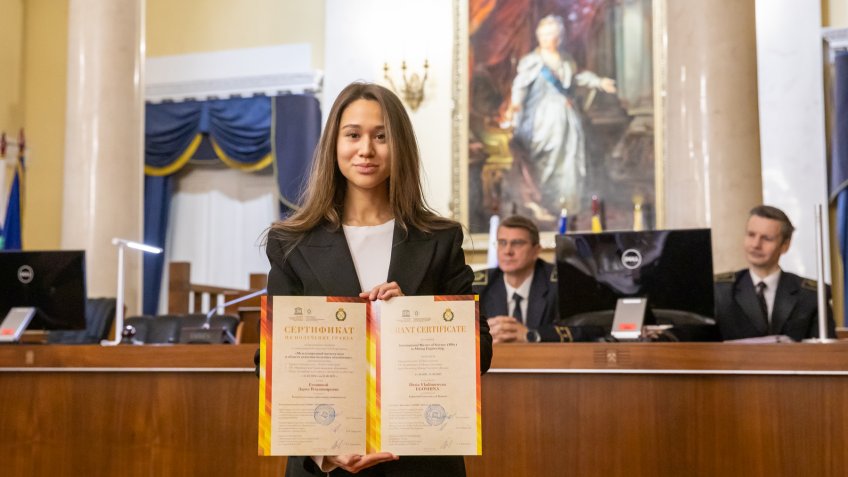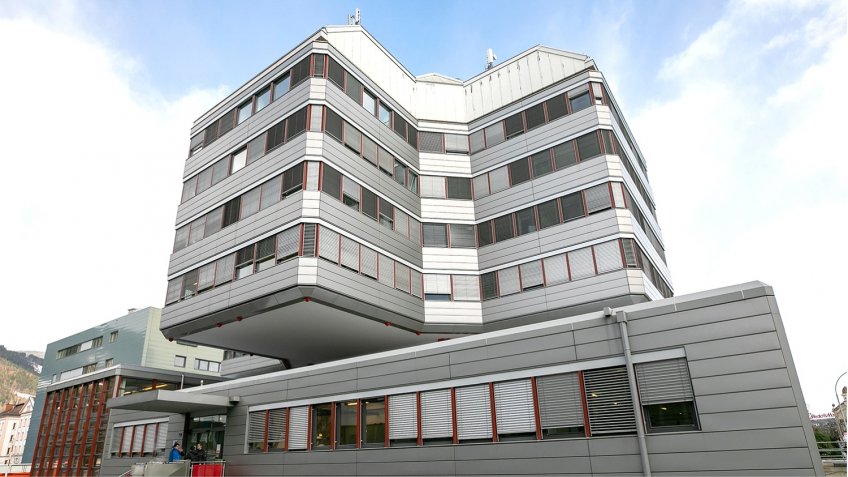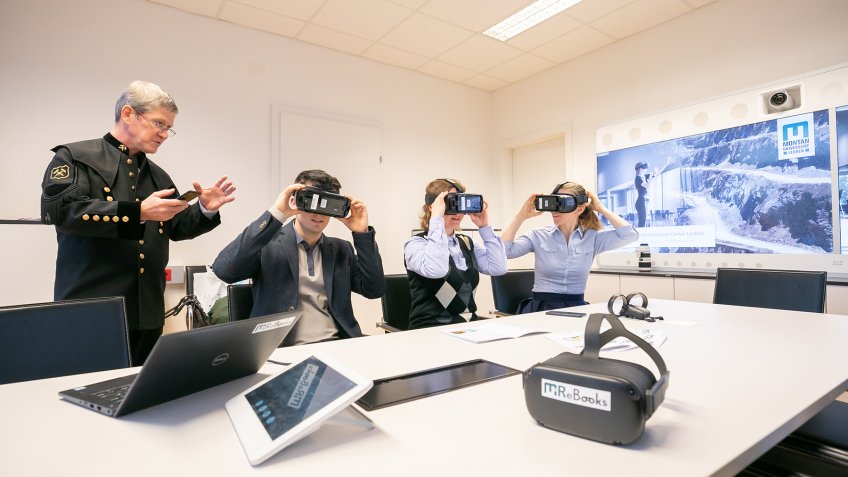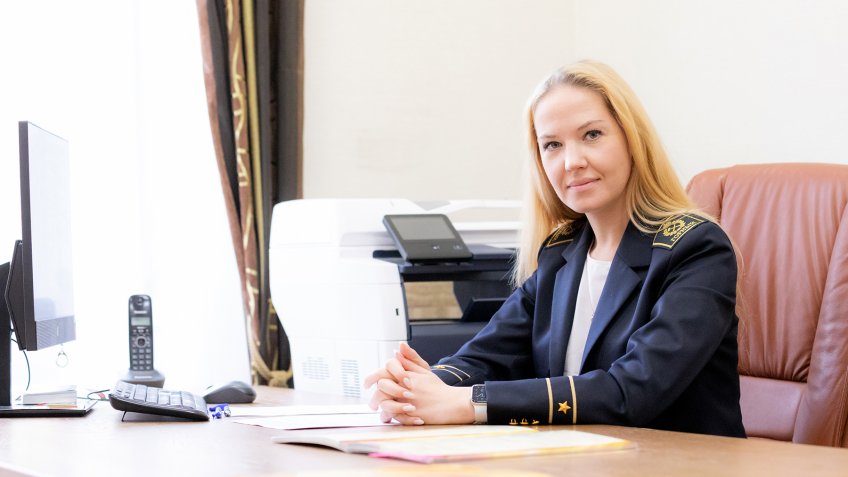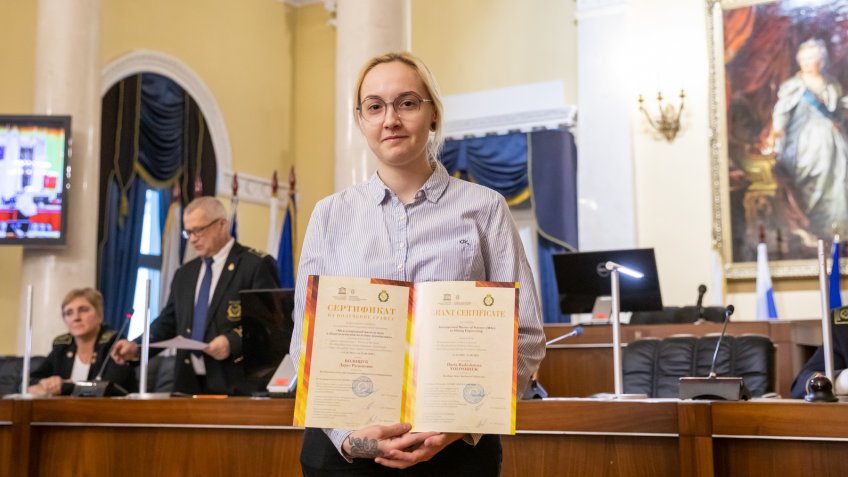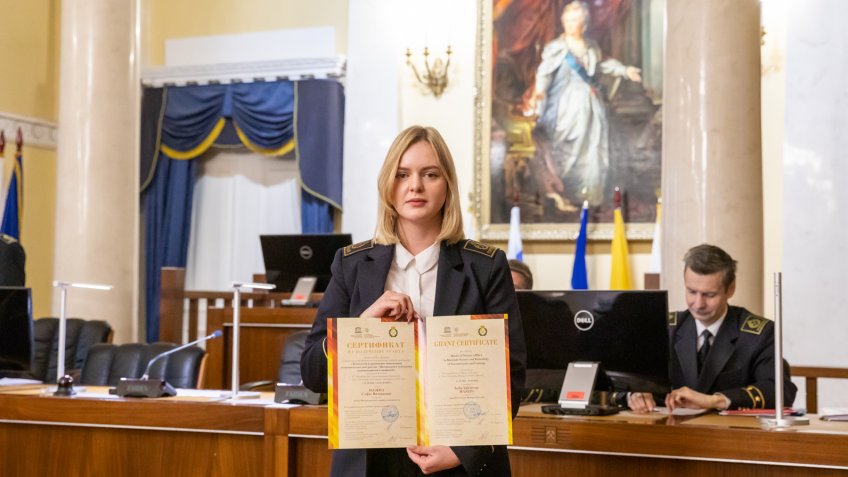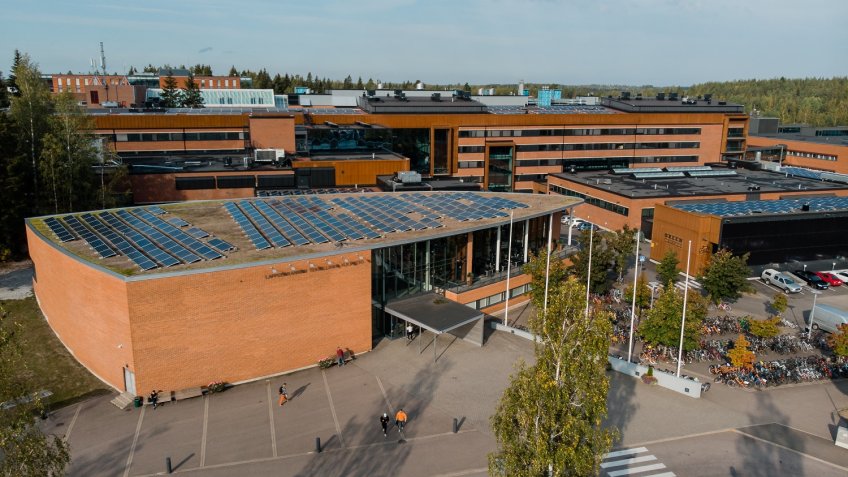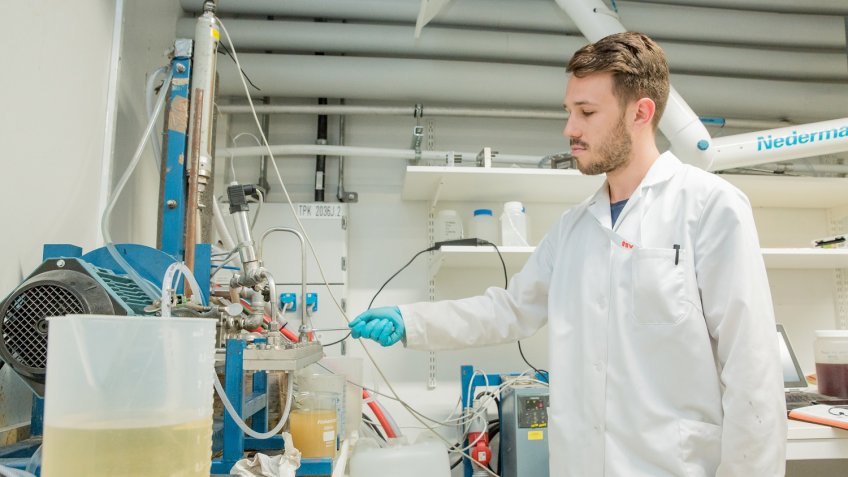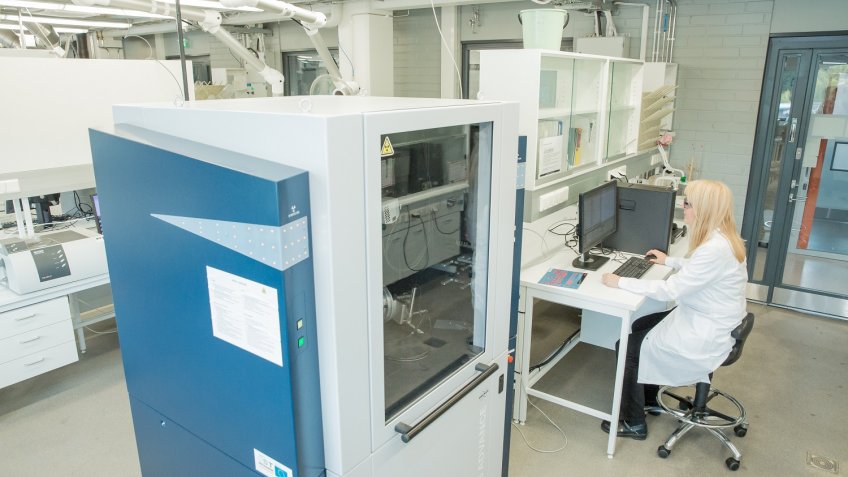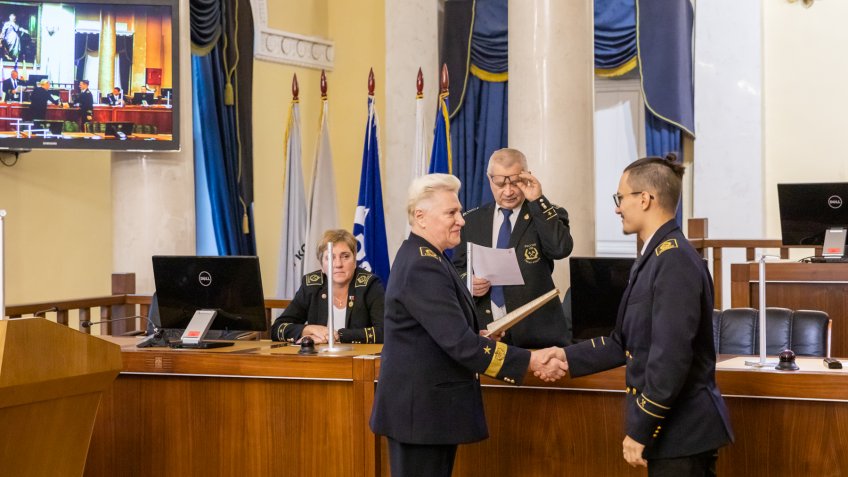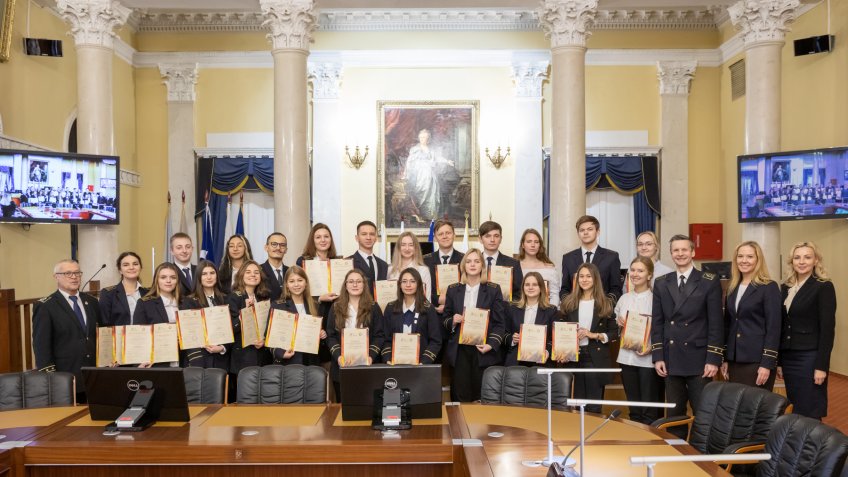In the late 1980s and 1990s, the golden dream of Soviet and then Russian youth was to go to the West. Any opportunity was used. Marriage to foreigners, the search for a job in one’s field of study abroad, which at the time was much more generously paid than in the home country, and, of course, academic exchanges. Few of the professors or students who took part in these projects ever returned. As a result, the brain drain and the consequent decline in the overall level of qualifications of scientists and engineers have become one of the most serious problems for our country in recent decades.
What is the purpose of sending young Russian talents to European or American universities today? For example, Daria Egoshina from Tyumen Industrial University won the competitive selection to study in Austria and Germany under the international triple diploma program “Modern Methods of Mineral Resources Development.” Its essence is that the guys study one semester at the Leoben Mining University, another semester - at the Freiberg Mining Academy, then they come back to their “alma mater” and after graduation, they defend a unified graduate qualification work. Representatives from all three institutions of higher education are on the committee that evaluates the qualifications. If they are successful, they receive Russian, German, and Austrian diplomas.
On Friday, October 15, Daria and 19 other Russian students received certificates guaranteeing each young scholar a grant of 920,000 rubles. It will cover the cost of transportation, meals, coronavirus test, consular fees, visa processing, and other expenses. In addition, this amount includes per diem and stipend, which means that our students will not have to think about where to get money to live.
They will not have to puzzle over how to get the necessary documents for entry into the EU in the current difficult sanitary and epidemiological conditions. All organizational issues, as well as financing of the project, will be resolved by its coordinators, i.e., St. Petersburg Mining University and the International Competence Center for Mining Engineering Education under the auspices of UNESCO established on the basis of the oldest technical school in Russia.
Upon arrival in the Old World, the students will of course have to serve their quarantine. It lasts five days. After that, you can start studying and devote your free time to your favourite activities, that is, to live a full life - go to cafes, stores, walk in the parks. No restrictions related to freedom of movement in the case of a negative coronavirus test are not provided. In addition, all Russian students have the opportunity to be vaccinated at any time with the local vaccine, so they will not have any additional difficulties with adaptation, even in the case of stricter rules and regulations.
“The sphere of my scientific interests is technosphere safety in mining. Assessment and minimization of risks associated with occupational safety and anthropogenic impact on ecosystems. In order to become a professional in this field, it is very important to see with my own eyes the best foreign practices, to get acquainted with nuances of European standards, modern mining technologies, to compare the infrastructure of Austrian and German laboratories with ours. I am sure that my participation in the Triple Degree Program will give me additional knowledge and skills which I will later be able to apply in Russia,” says Daria Egoshina.
Returning home and enrol in postgraduate school, that is, continue research - a prerequisite for participation in the program triple degree. Its global objective is to increase academic mobility throughout the country. In other words, to improve the mechanism, the smooth operation of which is necessary to reduce the deficit of engineering and scientific personnel in the mineral sector, which is the cornerstone of the national economy.
For this purpose, the Nedra Consortium of Higher Education Institutions was created a year ago. It united higher educational institutions, whose educational programs are related to training specialists for the mining and oil and gas industries. It was the students of this association and had the opportunity to pass competitive selection for training abroad at the expense of grants of the Competence Center under the auspices of UNESCO. The winners of the first round were chosen by the universities themselves, and the second round, where about 70 best graduate students from all over the country came, was chosen by experts from the city on the Neva.
This year, 16 young people from Kuzbass Technical University, Tyumen Industrial University, as well as St. Petersburg State University and Mining University, were selected for the triple degree program. They will fly to Vienna on Sunday and from there to Leoben, where they will begin their studies. Four more young people will go to the Federal Republic of Germany, they will study at the Freiberg Mining Academy for the entire academic year, but with a dual degree program. Similar agreements have been reached with the LUT University in Lappeenranta, Finland, where two students are going. The most important thing is that this is not a one-time event, the project is designed for ten years. Moreover, in subsequent years, the number of universities of the Nedra Consortium, which take part in it, will be expanded.
“"The implementation of this initiative was preceded by long and painstaking work to unify curricula. Otherwise, the subjects that our students study at foreign partner universities could not be taken into account here in Russia. And vice versa. Standardization of as many educational programs as possible promotes academic mobility, the growth of competencies of young scientists and future engineers, and also creates an environment of trust. This is very important because it is only possible to respond adequately to the challenges facing humanity today, including those related to minimizing the negative impact on the environment, together. And for this we must at least trust each other," stressed the head of the International Department of Mining University Alexandra Kopteva.
Cooperation between St. Petersburg Mining University and its partners in the EU and other parts of the world has been going on for decades. For example, every year its students and postgraduate students go to internships at the Freiberg Mining Academy in Germany. The best of them can earn a second European degree or a PhD there. Young scientists from Germany, in their turn, take part in international conferences and competitions held in the Northern Capital, including the Russian-German Raw Materials Forum. Now representatives of other Russian universities also have the opportunity to become part of this collaboration.
For example, Daria Voloshchuk from Kuzbass Technical University is studying to become a chemical technologist. She says that studying abroad is by no means an end in itself, but one of the tools that will give her a competitive advantage over her peers and, most importantly, an opportunity to “develop her competencies to apply them later while working in the home country.
“I am interested not only in chemistry but also in other fields of knowledge, including ecology. Only not from a social or political point of view, but an industrial one. I would like to get as much knowledge and practical skills as possible, so that I could determine, with a high degree of certainty, what damage to nature is caused by a particular enterprise. And to understand, employing which technologies or activities it is possible to reduce this damage. It is perfectly clear that we can not stop all mining, and I would not like to find myself in the Stone Age. But it is very important to understand how to minimize the negative impact on the environment, including by recycling recyclable materials,” said Daria.
In Kemerovo, she interned, mainly in chemical production, but in Germany and Austria, the emphasis will be placed on interaction with companies in the mining industry. Expanding the horizons of knowledge, which in the future will allow young people to become more in-demand specialists, is another advantage of studying abroad. That’s what almost all the guys talked about.
“After returning from abroad and defending my final qualification work, I expect to enter the postgraduate school of St. Petersburg Mining University,” emphasized Sofia Mazepa, a student of this university (she is going to Freiberg to participate in the international double Master’s degree program). “During my undergraduate studies, I worked on heat treatment of high-speed steel cutters to improve their performance properties. But in the future, I plan to study the influence of lasers on the structures of different materials and alloys. What are we talking about? Let’s say we put a QR code on a product. There is a question: what influence will an aggressive environment have on it, for example, high temperatures, occurring in case of fire. Will it stay intact, won’t its quality suffer? This is very important in many cases because it allows us to trace the entire path of the product from creation to sale, which is essential in the fight against counterfeiting.
It took a lot of hard work to qualify for the grant, Sophia said. Academic performance alone was not enough. To study abroad, you also need to be able to speak English or German, do research, and be the author of at least one publication in a scientific journal. In addition, one must have “the firm intention of going to graduate school.”
“My parents had been preparing me since high school to study abroad. But it so happened that in the year when I finished eleventh grade, education in Finland suddenly became fee-paying. There was no time to consolidate the necessary amount, so I decided to go to Mining University. And when I learned that such a project was being implemented here, I immediately decided to join it. I have been going towards it consciously for almost two years,” added Sofia.
Another student of St. Petersburg Mining University Dmitry Bratskikh is studying at the oil and gas department. For his studies in Leoben, he chose to specialize in geoecology. He says it is an extremely relevant trend today. Energy-saving, oil vapour recovery, hydrogen production, storage and transportation, land reclamation - technologies related to these topics will be in demand in the future as well.
“Another promising scientific direction is the Internet of Things, that is, the exchange of data between different devices. This is when your smartphone, for example, sends a signal to your kettle to start heating water. These kinds of concepts can be used not only in the home but also in the industry. Their implementation in the mining industry will make it possible to combine the solution of two tasks that are fundamentally important for all civilizations: to minimize the technogenic impact on nature and increase the profitability of specialized companies. This is exactly what I plan to do after my return from Austria and Germany,” assured Dmitry.
Note that more than 19 million rubles have been allocated for the training abroad of 22 students from Russian universities, which are members of the Nedra Consortium, this year. Some may think this is too much money. To be convinced of the contrary it is enough to remember the saying “you do not need atomic bombs or long-range missiles to destroy a nation, all you need is to lower the quality of education and allow cheating at examinations.”
It is unlikely that there will be many who want to argue with this assertion.
